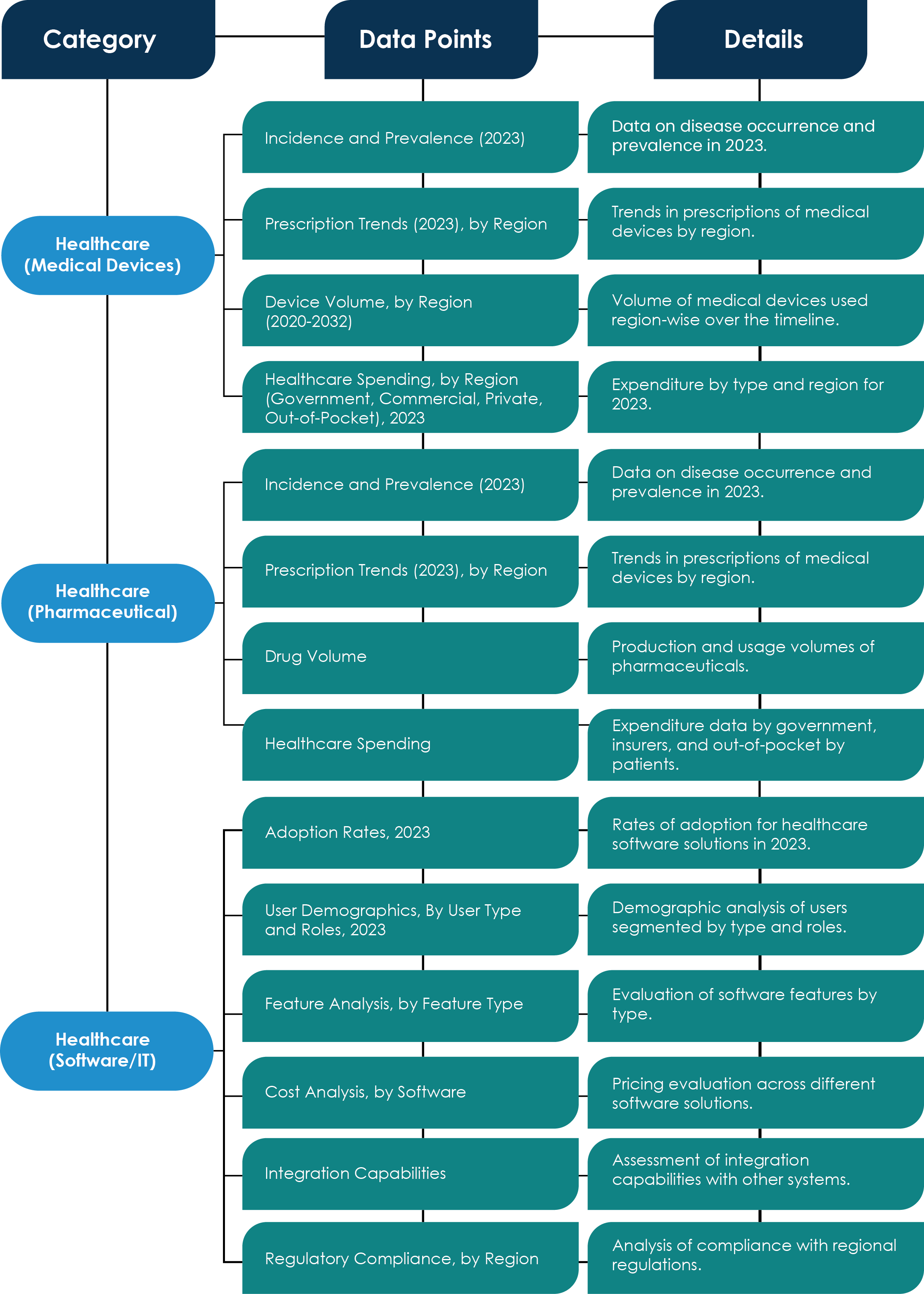Austin, Dec. 05, 2024 (GLOBE NEWSWIRE) -- As we navigate through a rapidly evolving healthcare landscape, SNS Insider has identified several transformative trends that are shaping the future of healthcare:
Expansion of Telemedicine and Remote Patient Monitoring: The adoption of telemedicine has surged dramatically, especially during the COVID-19 pandemic. By the end of 2023, approximately 80% of physicians in the U.S. reported using telehealth services, up from just 14% in 2016. This shift has allowed nearly 50 million Americans to utilize remote patient monitoring devices, reflecting a growing acceptance of virtual healthcare options. Furthermore, studies indicate that remote patient monitoring can reduce hospital readmission rates by as much as 76%, showcasing its effectiveness in managing chronic conditions and enhancing patient outcomes.
Integration of Artificial Intelligence and Machine Learning: Artificial intelligence (AI) is increasingly being integrated into healthcare diagnostics, significantly improving accuracy and efficiency. For example, AI systems have enhanced early-stage cancer detection rates by 40%, allowing for timely interventions that can drastically improve survival rates. Additionally, AI diagnostic tools achieved an accuracy rate of 90.2% in 2023, marking a substantial improvement from previous years. This technological advancement enables healthcare professionals to reduce patient wait times by up to 30%, thereby streamlining operations and improving overall patient care.

Subscribe to Our Report Bundled Package@ https://www.snsinsider.com/subscription
(Package Benefits are 5 Report for USD 7500 & 10 Reports for USD 12000, Also You Can Choose Custom Package of Your Choice)
Advancements in Personalized Medicine: Personalized medicine is transforming treatment approaches, particularly in oncology. Approximately 50% of new cancer therapies approved in recent years are based on genetic profiling and personalized treatment plans. This tailored approach has shown to improve treatment response rates by around 30% compared to conventional methods. Furthermore, nearly 70% of physicians now believe that personalized medicine will become the standard of care within the next decade, indicating a significant shift towards individualized therapy strategies.
Rise of Wearable Health Technology: Wearable health technology is rapidly gaining traction among consumers, with about 50% of adults in the U.S. owning at least one wearable device as of 2023. This trend is driven by a growing interest in health monitoring; nearly 80% of Americans express support for using wearable devices to track their health metrics. By 2025, it is estimated that around 71 million Americans will engage with some form of remote patient monitoring service, highlighting the increasing reliance on technology for personal health management.
Breakthroughs in Regenerative Medicine: Regenerative medicine is experiencing significant advancements due to increased research and investment. For instance, clinical trials have demonstrated that regenerative therapies can improve recovery rates for conditions such as spinal cord injuries by up to 70%. The number of clinical trials focusing on stem cell therapies has also surged, with over 1,500 active trials worldwide as of 2023, indicating robust growth and interest in this field.
Efforts Towards Healthcare Interoperability: Healthcare interoperability remains a critical focus area for improving system efficiency. Currently, only about 30% of healthcare organizations report having fully interoperable systems. However, efforts are underway to enhance this percentage; achieving interoperability could lead to a reduction in healthcare costs by approximately 25%, primarily through improved coordination and reduced duplication of services.
Sustainability in Healthcare: Sustainability initiatives within healthcare are becoming increasingly important. Hospitals are targeting a 50% reduction in medical waste by 2030 as part of their sustainability goals. Additionally, energy-efficient practices are projected to lower operational costs by about 20-30%, reflecting a commitment to reducing environmental impact while also improving financial performance within the sector.
A Wide Array of Detailed Reports Across the Healthcare Sector
SNS Insider’s recent publications span across various subdomains of healthcare:
| Category | Number of Reports | Description |
| Medical Devices & Equipment | 75 | Covering everything from general surgical instruments to advanced diagnostic devices. |
| Pharmaceuticals | 84 | Delving into drug development cycles, regulatory landscapes, and market demand across therapeutic areas. |
| Biotechnology | 52 | Reports on cutting-edge research, including genetic engineering and molecular diagnostics. |
| In Vitro Diagnostics | 63 | Highlighting the importance of diagnostic tests in disease prevention and management. |
| Digital Health | 46 | Exploring how technology is revolutionizing patient care through innovations in telehealth and AI diagnostics. |
| Consumer Health | 39 | Discussing consumer-centric products, including over-the-counter drugs, wellness products, and nutritional supplements. |
Subscribe to Our Vertical Subscription Package@ https://www.snsinsider.com/subscription
(Package Benefits Include 150 reports from the healthcare Industry which are valid for 1-year time frame.)
In-Depth Market Insights Beyond Size Estimates
Here is the table in a three-column format:

Subscribe to Our Membership Packages@ https://www.snsinsider.com/subscription#Membership
(We have Categorized Our Membership Packages into Nano, Micro and Macro, So Choose as per Your Business Requirements)
Looking Forward: Trends and Projections
Increased Integration of AI in Healthcare Diagnostics and Operations
The integration of artificial intelligence (AI) in healthcare is set to significantly enhance diagnostic accuracy and operational efficiency. By 2024, AI technologies are expected to improve decision-making accuracy in healthcare by over 30%, enabling quicker and more reliable diagnoses. For example, AI applications have shown a 40% increase in early cancer detection rates, which is crucial for timely treatment. Additionally, AI is projected to reduce patient wait times by up to 30%, allowing healthcare providers to manage higher patient volumes without compromising care quality.
Surge in Biotechnology Applications
Biotechnology is increasingly pivotal in healthcare advancements, particularly in drug development and disease management. In 2023, approximately 70% of new drugs approved by the FDA were derived from biotechnological processes. The speed of vaccine production has also improved dramatically; for instance, mRNA vaccine technology enabled the rapid development of COVID-19 vaccines within a span of just 12 months, a process that typically takes several years. Furthermore, genetic testing applications have surged, with over 1 million genetic tests performed annually in the U.S., facilitating personalized treatment strategies for various conditions.
Expanding Role of Digital Health Solutions
Digital health solutions are becoming integral to modern healthcare delivery. By the end of 2024, it is expected that around 30 million patients in the U.S. will utilize remote patient monitoring (RPM) services, reflecting a growing reliance on technology for managing chronic conditions. Telemedicine has contributed to a 15% reduction in non-urgent emergency room visits, indicating its effectiveness in providing timely care while alleviating pressure on healthcare facilities. Additionally, wearable devices have increased patient engagement by 20%, particularly among individuals with chronic illnesses like diabetes and hypertension, as they empower patients to actively participate in their health management. These statistics underscore the transformative potential of AI, biotechnology, and digital health solutions in shaping the future of healthcare. As these technologies continue to evolve and integrate into everyday practice, they promise to enhance patient outcomes, streamline operations, and make healthcare more accessible and efficient.
About SNS Insider
SNS Insider is a leading provider of global enterprise research and consulting. We bring years of experience in publishing insightful and detailed reports that help businesses understand the breadth and depth of various industries. For more information, please visit our website.
SNS Insider Offering/ Consulting Services:
Go To Market Assessment Service
Total Addressable Market (TAM) Assessment
Competitive Benchmarking and Market Share Gain
